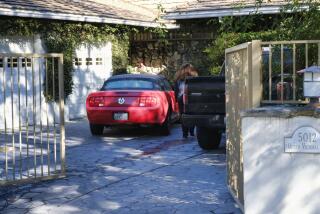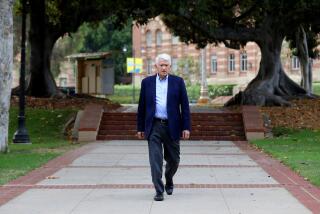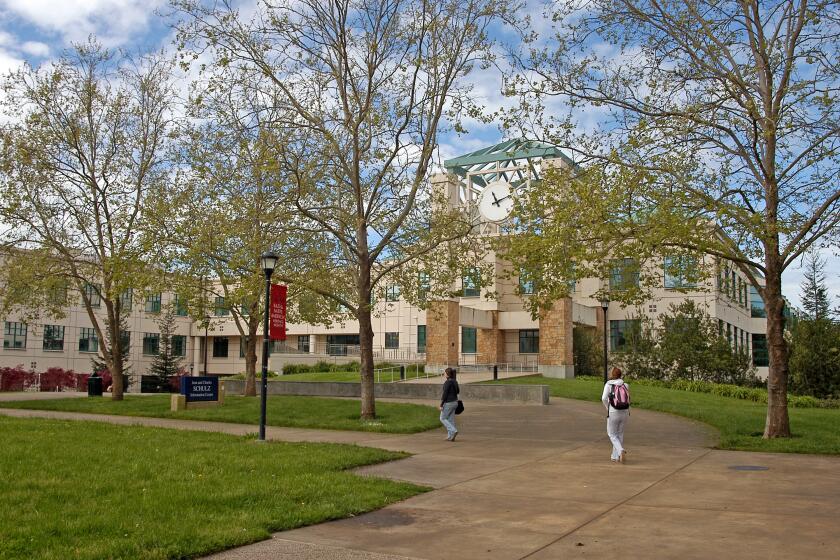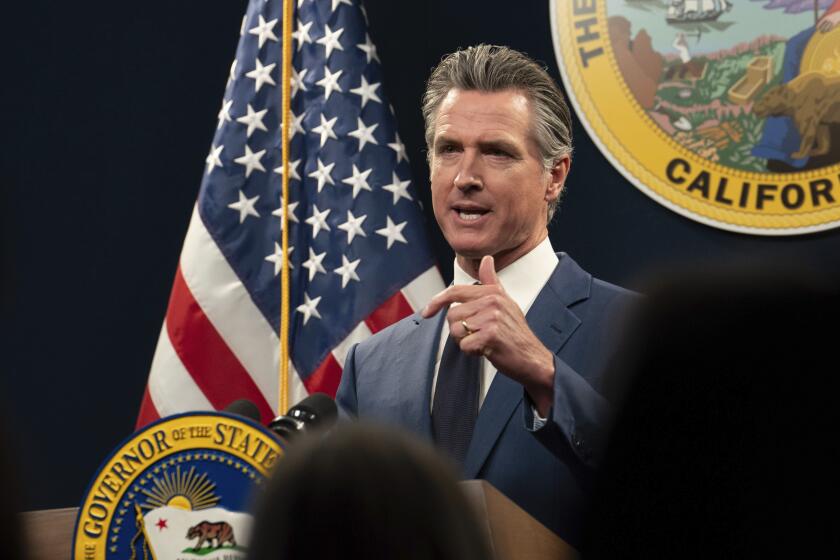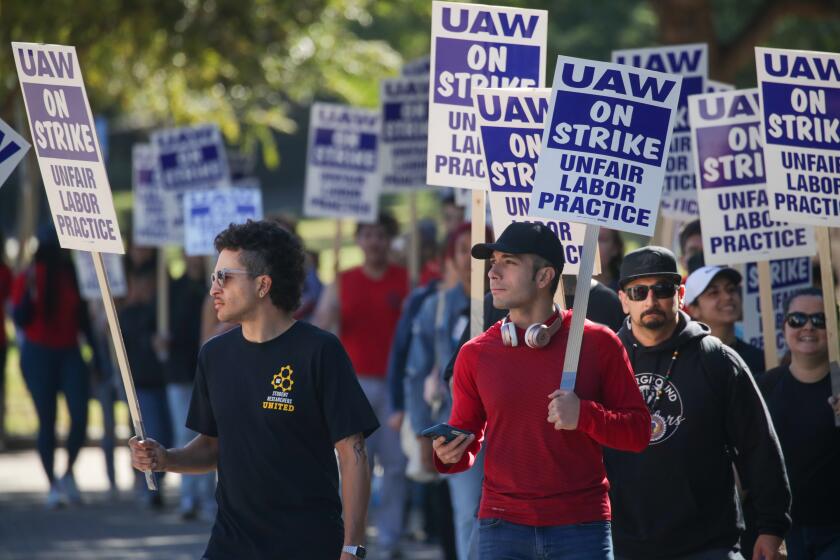AN EARLY INFLUENCE
Roger Boesche’s formal title at Occidental College is the Arthur G. Coons distinguished professor of the history of ideas. But these days, he also is known as Barack Obama’s first, and possibly most influential, teacher of politics.
That goes back to 1979, when a young Hawaiian known as Barry enrolled on scholarship at Occidental in northeast Los Angeles and then had two Boesche classes: a freshman history of American thought from the Revolution to Franklin D. Roosevelt and a sophomore-year survey of 19th and 20th century European political philosophy.
After two years at Oxy, Obama transferred to Columbia University, where he earned his bachelor’s degree. He later attended Harvard Law School. Still, Oxy claims him as an alumnus.
Boesche and Obama have exchanged e-mails over the years, and Obama, in interviews and messages, has expressed thanks to and admiration for his former teacher. The two have not seen each other face to face in nearly three decades, but Boesche, now 60 and in his 32nd year at Occidental, hopes to visit the new president at the White House.
Boesche recently shared some thoughts about his former student. Some excerpts:
What are your memories of Obama back then?
He was a bright student. But I have a lot of bright students. The clearest memory I have is of being in a sandwich-and-salad place on campus, a kind of egalitarian, communal place where faculty would meet with students. I remember being there with Obama and a couple other students in the winter of 1981.
I think I was handing back a midterm or paper. And I told him I thought he was incredibly smart but he wasn’t working hard enough. He spoke right up. He said: “I’m working as hard as I can,” essentially -- that he was not slacking off.
What made you think he wasn’t working hard enough?
I had had him as a freshman the year before. He did very well, so I knew his talent was there. And you can also tell a lot about students by the questions they ask and the answers they give to questions in class.
So if you find a student who gives incredibly good answers to questions in class and that person writes a C paper, you figure something’s wrong.
And there can be all sorts of things. The parents could be sick, or often it can be you are doing too much partying and you didn’t get started until too late. And I don’t know if that’s what it was.
But it’s also clear in his first book [the 1995 autobiography, “Dreams From My Father”] that he was partying. So I figure I may be the one who said: You could do a little less partying and little more studying.
Do you think your courses were relevant to his later life?
The themes in his stump speech were the themes of my American political history course. It was how ordinary people fought back against consolidated power, either corporate power or government power.
We looked at Jefferson, the Federalist Papers, the populist movement, the Farmers Alliance, the New Deal. A long list of legislation from Teddy Roosevelt to FDR, including many of the kind of things Obama’s going to do now, like a new Works Progress Administration and Civilian Conservation Corps. We are going to get the new New Deal. I lectured on that, but I don’t claim to have instilled that in him. He’s got great economic advisors to do that.
Do you have any sense that you did have an impact on him?
I don’t know, and I don’t know if he even knows, the extent of the impact. It would be impossible to measure. I’m kind of an agnostic on how to teach young people. To me, you get young people in here, with other bright young people, and you get good professors teaching what they want to, and something good happens to all those kids.
What’s really rare is to have someone succeed so dramatically so that people are talking about what the effect might have been. So yeah, it was a wonderful feeling filling out Obama’s name on the ballot both in the primary and the general election. I really put the ink to it to make sure they would count my vote.
Isn’t it awkward that Obama has not come to visit Oxy or give a campaign speech here?
He’ll come eventually. . . . In an e-mail to me, he said, “I know I owe Oxy a visit.” We want to give him an honorary degree. He can pick any day -- morning, noon or night, or middle of the night; we’ll show up.
Do you have a message for teachers and professors?
Actually, my message is for people who are not teachers and professors. And it is: If you had a teacher or professor in your life, at any level, whom you appreciated, send them a note, and you will make their year.
--
More to Read
Start your day right
Sign up for Essential California for news, features and recommendations from the L.A. Times and beyond in your inbox six days a week.
You may occasionally receive promotional content from the Los Angeles Times.
